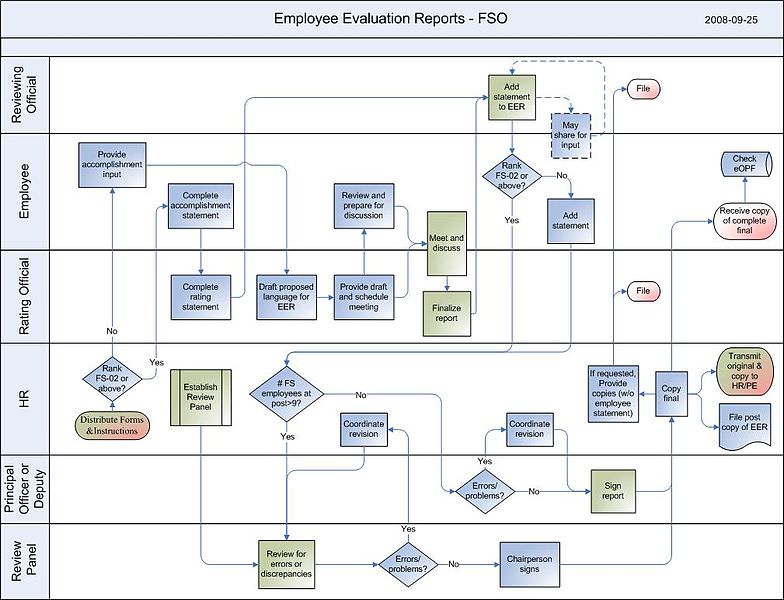Tips
Performance Appraisal and Participating in Your Own Performance Appraisal
The Pre-appraisal Checklist and Preparing for the Appraisal
- Be sure your supervisor notifies you of the date, and that you have enough time to prepare. A conference room is a good choice for privacy and no interruptions. Be sure your supervisor schedules enough time for discussion [1 – 1-1/2 hours].
- Gather:
- the job description and performance standards*
- goals set from the last performance appraisal
- your own documentation notes, status reports, or self-assessment
- If you have been asked to do a self-appraisal, be sure to ask how this will be incorporated in the performance appraisal meeting and be sure you have been given enough time beforehand to fill out the performance appraisal.
- Before preparing your self-assessment documentation, take a moment to:
- list your main areas of responsibility
- areas you have done well
- areas you need to improve in
- what you need from your supervisor to do a better job
- Remember to:
- Be comprehensive, but concise and specific. [“I believe flexibility is one of my performance strengths. This is demonstrated in the way I handled the constantly changing priorities during Fiscal Close in June.”]
- Be as objective, honest, and realistic as possible. Employees have a tendency to rate themselves consistently lower than their supervisors rate them.
- Compare your performance to the expectations, standards, and goals that were set.
Performance Appraisal: Writing it down and putting it all together
- What are your major accomplishments?
- What could you have done better?
- Do you understand what is expected of you? Are performance standards and work rules clear?
- What training or professional development do you need?
- Would you like to see your responsibilities change? How? Why?
- What career goals do you have? What do you need to attain those goals?
- How are relationships going with your co-workers? What could they do to help you perform your job better?
- What could your supervisor do to help you perform your job better?
Performance Appraisal: A self-assessment exercise:
- The purpose of my organizational unit is:
- The purpose of my job is:
- The customers I serve are:
- Some of my daily responsibilities in my job are:
The three most important responsibilities of my job are:
Performance Appraisal Results:
- How did you do? If you had difficulty completing the exercise, you may find that you and your supervisor are not in tune.
- To create an effective partnership with your supervisor, it is essential to know your supervisor’s most important priorities.
*Adapted from Hathaway and Schubert, Managing Upward:Strategies with Your Boss, Crisp Publications, 1992
Handling the appraisal meeting
Remember that the appraisal meeting is a discussion and a dialog between you and your supervisor.
- Maintain good eye-contact, attentive posture, and a professional manner.
- Listen and take notes.
- Reflect back to your supervisor your understanding of what your supervisor said.
- Compare the actual specific performance results and behaviors to the standards. Stay away from blaming others and making excuses.
- Emphasize strengths, as well as areas that need improvement.
- Be honest and take responsibility.
- Provide your ideas on how to resolve problems.
- If you don’t agree with your supervisor, ask for specific examples.
- Set goals, expectations, and standards together for the next appraisal.
- Discuss development and training needs.
- Tell your supervisor what you need to do your job more efficiently.

